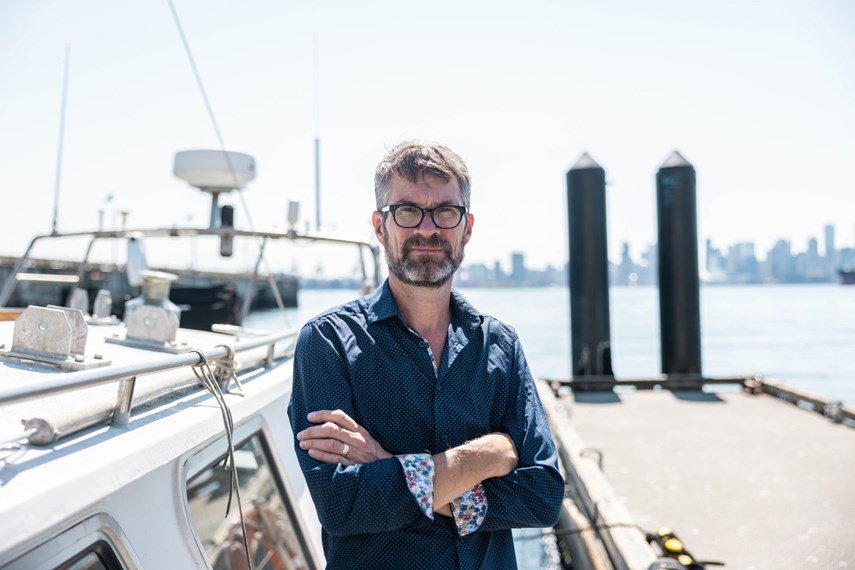Peter Ross, an internationally recognized expert in water pollution, looks out over the sparkling waters of Burrard Inlet and sees something others do not.
Invisible chemicals tend to be out of sight and out of mind, says Ross. But they leach into watercourses and into the marine food chain, creating “an invisible crisis.”
“There are 500,000 chemicals on the global marketplace,” he said. Many of those will surreptitiously make their way into the food chain.
No single agency is responsible for water, says Ross, making tackling the problem complicated.
Now Ross is hoping to establish a team of “water champions” throughout B.C. by harnessing scientific tools to help Indigenous people and other communities understand how pollution is impacting their water.
The Raincoast Conservation Foundation, a non-profit agency which combines science and environmental advocacy work, announced Thursday that Ross will join the foundation to lead a new project focusing on the Salish Sea and the Fraser River watershed.
“Water is the tie that binds us together,” said Ross.
Chemical pollutants persist in environment
The problem with many chemical pollutants is their incredible persistence in the food chain, he said. Flame retardants banned decades ago can still be detected in local whales, he said, which are the most polluted marine mammals in the world.
Over 80 per cent of pollution that makes its way into the water originates on the land, he adds. So every time someone uses a herbicide on their lawn “because they don’t like dandelions ... guess where that is going.”
Salmon heading up the Fraser River are also "basically running a gauntlet," said Ross, "past wastewater treatment plants, past farms, past pulp mills, past refineries and storm drains."
Pollution is also an issue in drinking water, he said. When surface water containing organic matter is chlorinated it can create cancer-causing chemicals, he said. Even in communities with relatively clean drinking water, lead from solder in old pipes installed prior to 1989 can still be found in the first water run through pipes in the morning, he said. Lead pollution can impact the brain, particularly in children.
"So there are a lot of invisible threats out there in our water."
Ross at forefront of pollution research
Ross has been at the forefront of researching pollution for 35 years. He was previously a research scientist at the Department of Fisheries and Oceans.
As vice-president of research at Ocean Wise with the Vancouver Aquarium until 2020, Ross also led projects to measure pollution levels in samples from the ocean floor off local sites around Burrard Inlet and Howe Sound. His team also conducted research on the persistence of plastic micro-particles from polyester fibres in the marine environment, which have been detected even in remote Arctic waters.
Ross said the difference with his latest project will be working closely with local Indigenous groups and others most impacted by the impacts of pollution. “We want to bring science to the community,” he said – and provide data that will allow communities to prioritize “which issues are important.”
Gabriel George of the Tsleil-Waututh Nation said it’s been the bounty of the land and sea that has allowed his people to flourish.
'All of us have a responsibility'
“That’s what we have to take care of,” he said. “All of us have a responsibility.”
George pointed to the closure of shellfish harvesting in Burrard Inlet as one of the lasting impacts of pollution on his people.
“We used to say when the tide went out, the table was set,” he said. “Now it’s full of heavy metals and contaminants.”
The environment is “what we have to take care of,” said George. “All of us have a responsibility.”
Ross said he has a love/hate relationship with pollution.
“Without the bad news, you can’t create the good news” he said.




